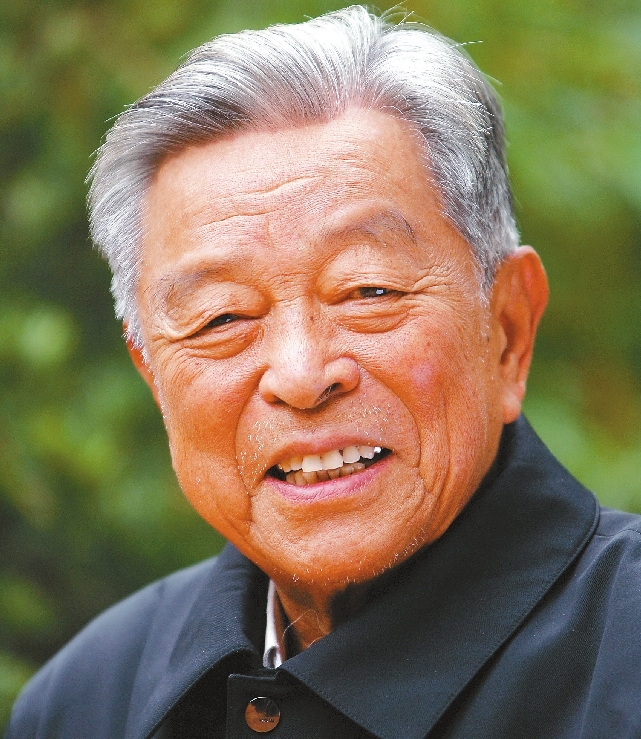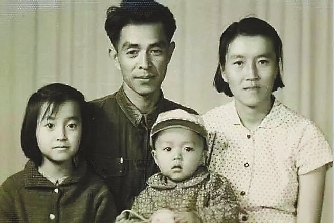

ONE of China’s iconic entrepreneurs, Chu Shijian, died Tuesday, aged 91. Chu, who made his name by turning a small regional cigarette factory into a thriving national tobacco giant in the 1980s and 1990s, ended his days as the head of an orange-growing empire in a remote, mountainous area of southwestern China’s Yunnan Province. Chu Oranges are known throughout the country and still sell at a premium over competitors’ fruit. In between his two successful business enterprises, Chu’s life was turbulent. His career as a star manager of a State-owned tobacco company ended in disgrace when he was sentenced to life imprisonment in 1999 for corruption. His wife and only daughter were also jailed, and his daughter died soon afterwards in prison. He was released on medical parole in 2002 and began his second life as China’s best known orange grower. A long list of Chinese entrepreneurs paid homage to Chu, remembering him for his management skills and his unyielding spirit. Jack Ma, the founder of Alibaba, called Chu “an extraordinary man.” “I respected him because I could see entrepreneurship in him,” Ma said. Wang Jianlin, founder of property and entertainment conglomerate Dalian Wanda Group, called Chu “a great figure in China’s reform and opening up.” The spirit of Chu “will motivate Chinese entrepreneurs one generation after another to struggle for China’s economic development,” Wang wrote in a eulogy. Liu Chuanzhi, founder of computer giant Lenovo, wrote that “people like him … pushed the progress of society,” adding that he particularly admired Chu’s ability to “live in an optimistic and strong manner” after having endured great suffering. Chu passed away in the same place where he was born — the city of Yuxi in Yunnan Province. He is survived by his wife and son, bequeathing his immensely popular orange-growing business to the latter. Chu was born in 1928 at a time when most of China was in political chaos. At the age of 16, he moved to the provincial capital, where he attended school sporadically before returning home and becoming a teacher. Chu then slowly rose in prominence through a series of factory management positions. He first showed his talent in management while running a large sugar mill in Yunnan. Chu’s path to becoming China’s tobacco king started at age 51, when he became director of a loss-making cigarette factory in 1979 — the year China began to reform its planned economy and test market mechanisms to improve efficiency and profitability. At that time, competition among different State-owned tobacco factories was intense. Through hard work and good management, Chu turned the near-bankrupt Yuxi Tobacco Co. — later renamed the Hongta Tobacco Group – into the most profitable State-owned tobacco firm in the country. Zhang Chongqing, former executive director general of the China Enterprise Federation, knew Chu since the early 1980s. He said Chu had once “lived in a tobacco field for seven days and nights” to study the changes the leaves underwent in an effort to improve quality. Chu’s efforts paid off. In its heyday, Hongta Group under his management became a pillar of the local economy in Yunnan Province. At its peak, it contributed 60 percent of the province’s fiscal revenues. In return, Chu was showered with a long list of honorary titles. However, Chu’s pay remained largely the same as that of any ordinary worker. “His salary in the early 1990s was about 3,000 yuan (US$450) a month … when his company was delivering 19.2 billion yuan (US$2.8 billion) a year [in profits and taxes] to the State,” Zhang said. Chu started to misuse company funds, which belonged to the State, and to accept bribes from those eager to buy cigarettes from him — his group’s cigarettes were in such short supply that there was an active black market for them. In 1996, he was placed under investigation, before being convicted of corruption in 1999. Although the evidence against him was made public, he received sympathy from many. Zhang visited Chu in prison and said many cars were lined up outside. “He told me that many cigarette factory managers were waiting to see him as they all wanted his advice,” he said. “He was working as a librarian in the prison. … He showed the spirit of a great entrepreneur. He didn’t look sad or tired. He was still full of energy,” Zhang said. Chu’s wife, Ma Jinfen, was also working at Hongta when she was jailed. “At the time I just thought I’d like to see him one last time, because I heard he would get a death sentence, that didn’t happen. When he was in jail, I would go visit him every week. I got out first because my charge was opportunistic behavior,” said Ma. With his personal assets confiscated and all honors revoked, Chu, at the age of 73, returned to his hometown after his release and started to plant orange trees on its barren hills. Chu’s friendships built in a lifetime of business proved especially fruitful. “When he was short of funds many would give him money in private, because they had all received help from him before,” said Jiang Baoquan, chairman of Nanjing Goldfoil Group, who had been Chu’s friend for over 30 years. Within a few days Chu’s bank account had more than US$10 million, he said. Pursuit of excellence is in his genes, even with oranges. The entrepreneur always said that growing good oranges takes heart. With this faith, his orchards grow China’s most famous oranges. “We have to get everything to work properly to come up with a product of this caliber,” said Chu. When Chu started his orange orchards, everybody thought he was out of his mind. Even famous business people tried to talk him out of it. “They said if we had financial difficulties they could take us in. I said that’s not the point,” said Chu. “Now we have created a special product, even orange farmers from the United States are envious.” Wang Shi, a founder of Chinese property developer Vanke, remembered Chu as “my role model, my older brother and my true friend.” “I still remember the first time I met him. He wore a straw hat with an open-necked shirt, and was bargaining with a worker who was fixing a water pump,” he said. The worker had asked for 80 yuan (US$11.92) for the job. Chu said he’d only pay 60 yuan,” Wang said, at his own birthday party talk show last year in Beijing. “I thought … here was the tobacco king who ran a 30-billion-yuan (US$4.5 billion) business still trying to get a bargain over a water pump.” Consumers were willing to pay extra for Chu’s oranges, said Hu Xingdou, a Beijing-based independent economist, because people admired “his spirit of never giving up or admitting defeat.” The nonagenarian Chu actually “inspired many young Chinese to start up their own businesses,” he added. Chu’s prison sentence officially ended in 2011, after several reductions in its length. In December 2018, Chu was picked as an exemplary figure in a documentary celebrating the 40th anniversary of China’s reform and opening up. “I was confident about growing oranges — when we planted tobacco we were dealing with 100 times the size of the orchard now — this is a piece of cake! My oranges sell well because costs are low and they taste great,” Chu said in the documentary, which was broadcast by CGTN, the international arm of CCTV. “Back then, we were No. 1 in China in quality and volume. That took maximum effort. It wasn’t possible with any slacking off. For example we used boilers, if we waited till they cooled to carry out maintenance, it would take too long. I would go in, even though it was so hot it singed my hair, I had to do it then and there. This motivated other people and we all did the best we possibly could.” Nanjing Goldfoil Group’s Jiang said that Chu was one of the heroes driving China’s business reform. “China’s reform and opening up needs lots of entrepreneurs. The times make the heroes, and the heroes make the times. These are the people who can drive forward reforms,” Jiang said. “A person needs to have strong faith. I think you must contribute meaningfully to society, to the country,” Chu told CGTN in an interview last year. “We feel some things are your own doing, and if people forgive you, then you should use whatever you have left to do good things for the country and for society, that way we achieve inner peace.” (SD-Agencies) | 
